
Podcast
Designing Successful Startups
Real stories. Raw lessons. Startup grit.

DESIGNING SUCCESSFUL STARTUPS
A weekly podcast focused on founders (and the people who support them) who are my guests and their lessons learned and plans for success. Join me, and a special guest for each episode. New episodes drop every Wednesday.
Professor-turned-entrepreneur, and founder of nine companies two of which had strong exits, Jothy Rosenberg talks with business leaders and personal achievers. “Designing Successful Startups” explores the challenges and rewards of entrepreneurship, overcoming adversity, and where grit and perseverance can get you. Be inspired by others, and push yourself along your path to success and fulfillment.
JOTHY ROSENBERG
JOTHY’S STORY
In two episodes, Jothy talks about his source of grit and then about all things related to Who Says I Can’t including his memoir, a TV Series, the non-profit foundation, his TEDx talk, Adventures on the Can Do Trail children’s book, his new book “Tech Startup Toolkit”, and this podcast.
Listen to or watch both episodes from here. 🎧
Recent Episodes
Starting from a simple insight about accessibility, host Jothy Rosenberg talks with founder Emily Smith about building software that actually helps people instead of intimidating them. Emily shares how volunteering exposed the barriers many face with apps and logins, leading her to create Side Nerd, a text-first interface that turns natural language into structured business data. She reflects on bootstrapping solo, rebuilding her platform from scratch, and why becoming her own technical cofounder mattered. The conversation explores inclusive design, workflow pain points, and how living with anxiety shaped her grit and comfort with uncertainty.
Reframing hiring as a runway strategy, host Jothy Rosenberg speaks with repeat founder Luis Derechin about why most offshore projects fail and how nearshore teams in Latin America change the equation. Luis shares lessons from building and exiting a venture-backed startup, discovering that US salaries were draining growth. He explains how time zone alignment, cultural proximity, and intentional onboarding dramatically improve success rates, while cutting costs by up to 70 percent. The conversation dives into retention, transparency, and the mindset founders need to build resilient remote teams that actually scale.
Challenging the myth of “ready,” host Jothy Rosenberg talks with startup advisor Lubna Hameed about why waiting for perfection is one of the most dangerous mistakes early stage founders make. Drawing from years as a head of design inside startups, Lubna explains how product market fit is achieved through learning, not polishing. She breaks down why design and marketing must move together, how to run effective user interviews, and when a product is truly ready to launch. The episode is a practical guide for founders who need momentum, clarity, and real validation before Series A.
Triggered by watching his father lose a 32 year career overnight, host Jothy Rosenberg sits down with serial entrepreneur Richard Sides to explore how early experiences shape founders. Richard shares his journey from introverted engineer to building multiple businesses across consulting, food, and enterprise software. He unpacks hard lessons around failure, choosing the right partners, bootstrapping through services, and building products inside larger ecosystems. The episode highlights grit, delayed gratification, and why owning your career security matters more than corporate loyalty.
Drawing from decades of firsthand experience, host Jothy Rosenberg speaks with international expansion expert Shan Nair about the hidden risks startups face when going global. Shan explains the two biggest mistakes founders make, expanding without a clear plan and trying to cut costs too early. Through real world horror stories, he shows how ignoring local laws, employment rules, and proper entity structures can lead to massive financial consequences. The conversation offers practical guidance on budgeting realistically, respecting local regulations, and knowing when to expand versus when to wait.
As AI reshapes how brands are discovered, Jean Serra believes most startups are already falling behind. In this episode, Jean joins host Jothy Rosenberg to explain why communications is no longer about press hits, but about credibility, narrative, and how your company shows up inside AI answer engines like ChatGPT and Claude. She shares lessons from building V2 Communications into a 45 person firm, surviving the 2008 crash, and helping founders align messaging for fundraising, growth, and longevity. This conversation reframes PR as core infrastructure, not window dressing.
Drawing on decades of startup leadership, Kae Kronthaler Williams sits down with host Jothy Rosenberg to unpack what it really takes to win when the odds are stacked against you. She revisits GeoTrust’s aggressive market strategy that forced an industry giant into acquisition, then shifts to the unspoken realities women face in executive roles. Kay also discusses her book Not Made for You, offering practical strategies for navigating bias, building influence, and creating stronger teams through true diversity. This episode blends startup strategy with candid leadership truth.
Kathleen Lucente joins host Jothy Rosenberg to challenge how founders think about communications, fundraising, and narrative. Drawing from her career as a tech journalist, senior communications leader at JPMorgan Chase during 9/11, and founder of Red Fan Communications, Kathleen explains why startups must build a clear brand narrative before raising capital. She urges founders to stop chasing press, focus on super consumers over broad ICPs, and invest early in strategic communications to attract the right investors, partners, and customers.
Steinn Gustafsson, founder and CEO of Chevin Technology, shares a bootstrapped founder journey shaped by deep technical curiosity and persistence. From Iceland to Cambridge, Steinn explains how Chevin grew from a solo consulting practice into a design house and then pivoted toward patented IP protection technology. He breaks down why hardware startups take longer, cost more, and demand patience through brutal sales cycles. Steinn reflects on lessons learned when customers suddenly pulled back, the importance of feeding the sales funnel early, and how grit comes from relentless problem solving rather than quick wins.
Paul Dorney joins host Jothy Rosenberg to share a founder journey that spans three startups, three exits, and three very different industries. From leaving the comfort of SAS to building Silbo, the Uber for youth sports officials, Paul reflects on early mistakes like expanding too fast and nearly missing a critical 83B filing. He explains why saying no can be a strategic advantage, why the best product does not always win, and how strong sales and marketing change outcomes. Paul also shares how grit, trust based teams, and learning beyond engineering shaped his evolution into a serial founder.
Ollie James joins host Jothy Rosenberg to share a founder journey that began at age eight with a neighborhood car washing business and evolved into leading a privacy first data company serving the US market from the UK. Ollie reflects on lessons learned from early startup roles, the reality of long B2B sales cycles, and a near miss caused by assuming relationships would quickly convert to revenue. He explains why his company deletes all customer data every 24 hours as a strategic choice, and why doing the job right matters more than chasing fast exits.
Andrew McGee grew up in Glasgow's rough East End surrounded by poverty and knife crime, but chose discipline over drift. Starting competitive boxing at 13, he built the mental framework that would later transform him from a heating engineer with £800 into a multi-millionaire property investor. Andrew shares how structure from sports became his business system—dedicated days for planning, training, viewings, and meetings. His biggest lesson: stop competing on price. His gym went from £20 to £150/month, proving premium pricing forces premium delivery. His mantra: compete against yesterday's version of yourself, not others.
In this episode, Jothy interviews Solomon Thimothy, founder of OneIMS digital marketing agency. Originally from Chicago, Solomon built his business starting with basic HTML websites in the early internet days. He shares his pivotal decision to invest heavily in automation software—spending tens of thousands despite financial risk—which enabled his company to scale from 20 to 200+ clients. Solomon discusses his "90% rule": eliminating most activities to achieve 10x growth, emphasizing specialization over generalization. His entrepreneurial grit stems from parental freedom to pursue his own path rather than traditional careers. Key lessons include strategic focus, the "who not how" mindset, and saying no to opportunities that don't align with growth goals.
Kendrick Wong, originally from Malaysia and now based in Singapore, built the first foreign-owned anime production fund after reading manga daily for 30 years. He discovered anime hit a massive inflection point—global revenue now exceeds Japanese domestic sales in a $25 billion market projected to reach $60 billion within five years. Despite being able to self-fund, Kendrick strategically raised external capital for partnerships and access to Japan's closed entertainment ecosystem. His grit stems from his grandfather, an entrepreneur who built Malaysia's largest car company from nothing. Kendrick's philosophy: if you want to make money, start with passion—it's the worst path to success but the most enjoyable.
Joel Benge, a communications expert who's worked everywhere from Nickelodeon to NASA to the Department of Homeland Security, specializes in helping technical founders overcome the "curse of knowledge"—assuming everyone thinks like they do. After joining a cybersecurity startup that couldn't explain their revolutionary algorithm, Joel created a card game with his eight-year-old son that explained it in 40 seconds. He developed a framework balancing heart, head, and gut in pitches, helping founders translate technical complexity into compelling stories. His mantra for fighting imposter syndrome: "Any room you can get into, you belong there." His grit stems from being a military brat, constantly reinventing himself.
Ben Wiener, a Jerusalem-based venture capitalist and bestselling author, shares how brutal pitching failures led him to create the HEART methodology—a five-part framework for startup pitches now taught at Harvard Business School and Johns Hopkins. After being told his pitch was "ridiculous" in a humiliating coffee shop meeting, Ben learned to reorder his pitch by calling out investor objections upfront, starting with the "why" instead of the "what." His breakthrough came from desperation and passionate belief in seeing opportunities others missed. Ben now offers his framework free to entrepreneurs, giving back to the startup community that transformed his career.
Jothy Rosenberg interviews Fabricio Costa, a Brazilian scientist turned entrepreneur with experience at Harvard, Apple, Amazon, and Accenture. Fabricio shares his journey from PhD researcher to startup founder, detailing costly mistakes like raising capital too early and diluting equity. He discusses his work developing technology to diagnose rare genetic diseases faster, his time leading Apple's developer programs in Brazil, and his current AI consulting work. The conversation covers AI hype versus reality, job displacement concerns, and the importance of AI literacy. Fabricio's grit story involves persisting through 30+ journal rejections before publishing groundbreaking research on non-coding RNA.Retry
Jothy Rosenberg interviews Pablo Martell, a CPA and fractional CFO who helps startups navigate critical tax and financial decisions. Pablo emphasizes the importance of proper entity structure from day one, explaining how C-corp formation enables future fundraising while preserving QSBS tax benefits. He details crucial concepts like 83(b) elections for equity grants, R&D tax credits that can offset payroll taxes even when unprofitable, and the need for ongoing compliance with evolving tax requirements. As a fractional CFO, Pablo helps founders understand cash burn, runway calculations, and financial modeling for fundraising while ensuring they don't make costly tax mistakes early on.Retry
Jothy Rosenberg interviews Andrew Skafel, founder and CEO of Edgewater Wireless, a fabless semiconductor company solving WiFi's fundamental limitation. Their "spectrum slicing" technology creates multiple concurrent channels from a single WiFi device, like turning a single-lane road into a multi-lane highway. Initially targeting stadiums, they pivoted to homes and enterprises after Cable Labs showed them the broader market opportunity. Their AI-powered solution proactively manages spectrum allocation and works with existing devices. Recently awarded a major Canadian government grant, Edgewater has validated their technology through massive scale testing of 6 million devices across 750,000 homes with Liberty Global.Retry
Jothy Rosenberg interviews Aryan Mohindra, a 20-year-old entrepreneur who transformed his life at age 12 after failing school and being 40 pounds overweight. Inspired by a quote from a TV show ("you don't know what you're fighting for"), Aryan discovered the power of having compelling reasons behind actions. He turned his grades around, lost 70 pounds, started networking in real estate at 15, landed internships, gave a TEDx talk, and now runs a podcast interviewing executives plus a fitness consulting business. His core message: challenging perceived requirements and finding your "reason worth fighting for" unlocks paths others miss.
Jothy Rosenberg interviews Sean Broderick, a serial entrepreneur turned VC who went from coding in high school to running Techstars Boston and now investing at D Lab. Sean challenges conventional wisdom by arguing that investors don't back ideas—they back founders. He emphasizes that integrity, intelligence, and grit matter more than brilliant concepts, noting "some of you are here in spite of your idea." Sean shares how the best startups often emerge during economic downturns, discusses his journey from multiple failed companies to successful exits, and explains why he believes failure is a better teacher than success for entrepreneurs.
Jothy Rosenberg interviews Andy Levine, founder of DuVine Cycling + Adventure Company, who started leading bike tours in France's Burgundy region in 1992 straight out of college. Andy built a boutique luxury cycling company over 30 years, maintaining small group sizes (maximum 14 people) while scaling to 200+ employees globally. He emphasizes authentic local connections, exceptional hospitality, and staying true to core values rather than expanding everywhere. Andy shares how company culture became his competitive advantage, the challenges of the travel industry including COVID-19's near-fatal impact, and how his grit comes from not wanting to disappoint customers and team members.
Jothy Rosenberg interviews Ali Madhavji, a Vancouver-born entrepreneur now based in Singapore who went from refugee parents and a $1.50/hour paper route to building a successful crypto exchange and becoming a Web3 investor with 200 companies in his portfolio. Ali shares his journey from startup founder to creating Blockchain Founders Fund, explaining how blockchain technology can solve multi-party trust issues and help billions of unbanked people access financial services. He discusses his investment criteria focusing on team track record and execution speed, common founder mistakes around alignment and customer discovery, and his vision for blockchain's mainstream adoption in solving real-world problems.
I am ADHD and I believe that it is actually my secret weapon. My ADHD has been responsible for all of the success I've had over my professional life. As a kid it was tough - constantly being told 'you're being disruptive, sit down, you're disrupting the class.' I've been told that I was broken by every single teacher so many times that there was no possible way I could actually be doing something good. But it turned out to be an incredible advantage. I've always lived by one simple rule: you can get everything you want simply by offering help first.
I grew up working for my dad, cleaning office buildings when I was too young to drive. Then I moved to Wall Street and they basically said we're gonna take an entire class of people and not do business with them because they're not rich enough. That struck me as odd. I was involved in investment banking during the dot-com run up, and I'd be looking at prospectuses knowing this company was garbage, but it didn't matter because it was sellable. That bothered me. It didn't jive with my moral compass, so we said let's go do our own thing.
As an immigrant woman coming on dependent visa with no work permit, I had no clue what I was going to do in America. When I interviewed for minimum wage jobs and told them I wanted to launch my own business, nobody offered me the job. That's when I realized I was ready. I started with free lessons in a church basement, serving 400 students that first summer. Now, three years later, we have three centers in Silicon Valley serving over 1,000 students annually. Self-doubting is normal, but just be confident and give it a try.
One thing that I've done is doing it all by myself and not putting the work marketing early on. What I mean by this is all of us have phones and Internet and just recording the process, getting on social media, sharing the process. Either it's talking about your business, talking about the services that you do, ensuring with the world how we serving you, what works, what doesn't work and not being scared of it. I've realized that I kind of done a lot of things backstage, but not really package them well into case studies and convert these into content.
There's a difference between temporary and total failure. Total failure is when you walk away from the process, because now you are not utilizing the experience and the setbacks to your advantage. But if you fail and everything went wrong, you fell off the horse and you beat yourself up, but next day you get back on it—that's not failure. That is far from it because you're still in the process. As long as you stick to it, those eventually become the best lessons, the foundation of progress. You don't call it failure. You call it a process.
One of the most important things that some new podcasters get wrong is not allowing enough time to see the true potential of a podcast, especially when you have a pretty new business, like for example, startup. To have a really good understanding and have enough data from your podcast to actually know if it works, you need ideally a year of weekly episodes. A lot of podcasters stop too early. They start a podcast, they do a few episodes. Consistency is extremely difficult, but within that year, you can truly know if this works or doesn't work.
More About the Podcast
I lost my right leg and left lung to bone cancer by the age of 19. I had no choice but to develop grit just to survive. Then starting at age 32 I founded and ran a total of 9 tech startups and I sure needed the grit I had already developed to do that. Truth is, grit is needed whenever we take on something really difficult. In this podcast we will visit with people from those two very difficult pursuits as well as others. This podcast is full of advice on how to develop grit for whatever tough things you need to tackle including on how to tackle the great challenge of creating a new tech business out of thin air. My guests and I will convey our valuable startup experience via sometimes amusing stories, happily admitting our mistakes, but always helping the audience know the right way to build a successful startup that will be headed in the right direction the right way, maximizing its chances to become a profitable business. And you will be inspired when the guest is someone like Hugh Herr who lost both legs below the knees to frostbite while ice climbing. He has since gone on to be a world class climber but also the leading developer of bionic prosthetics in the world. There are hundreds of people as inspiring as Hugh. You will get to meet lots of them.
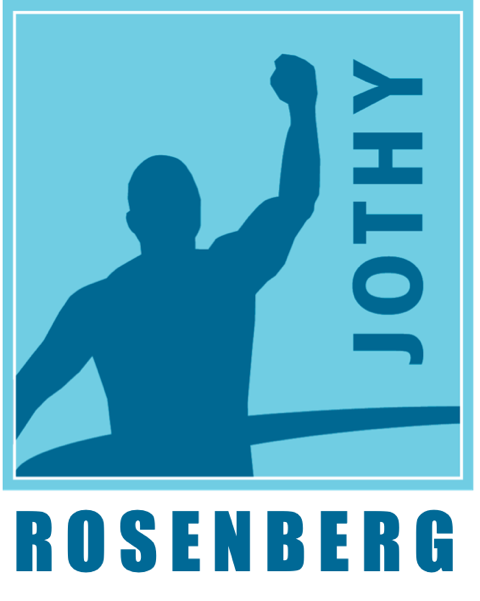



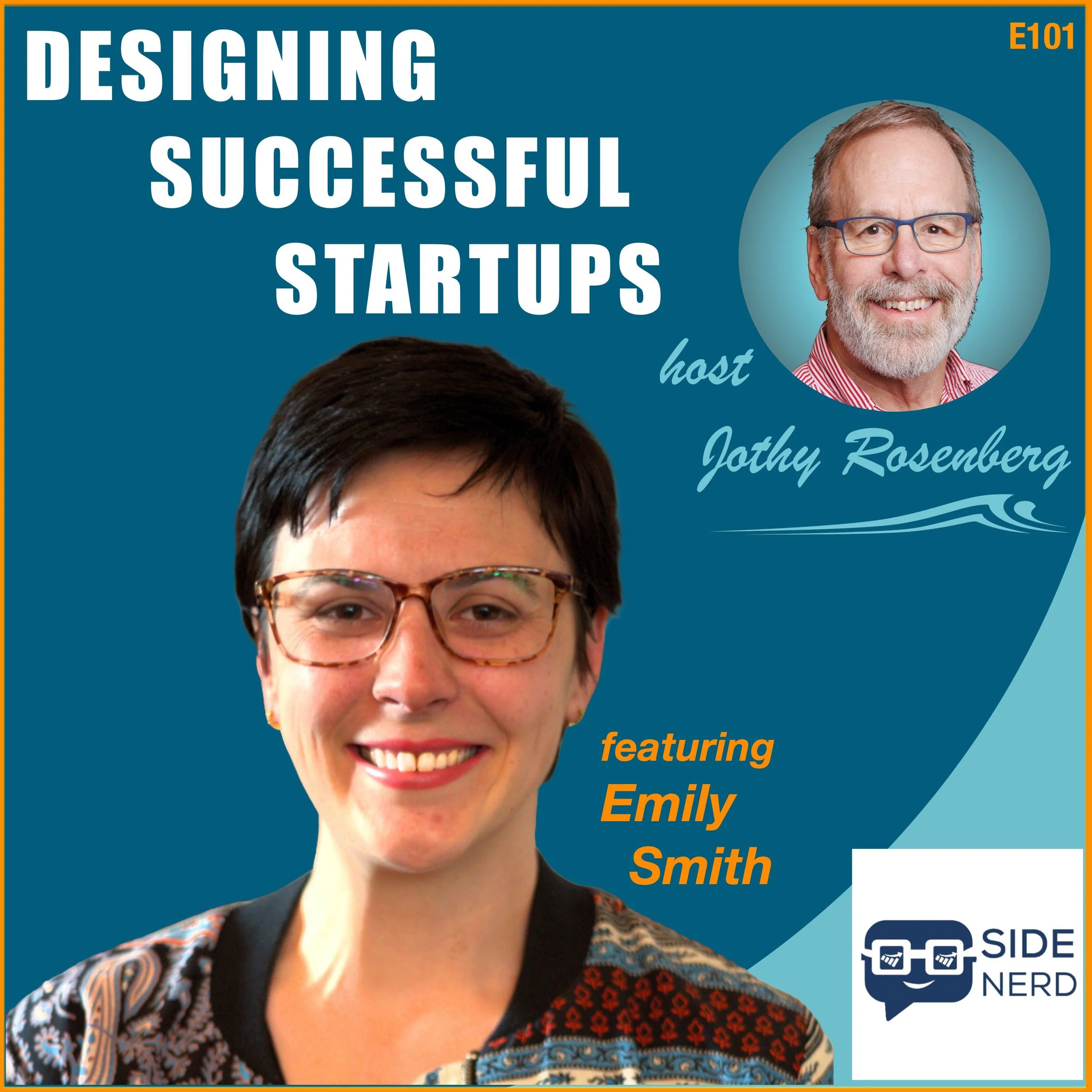
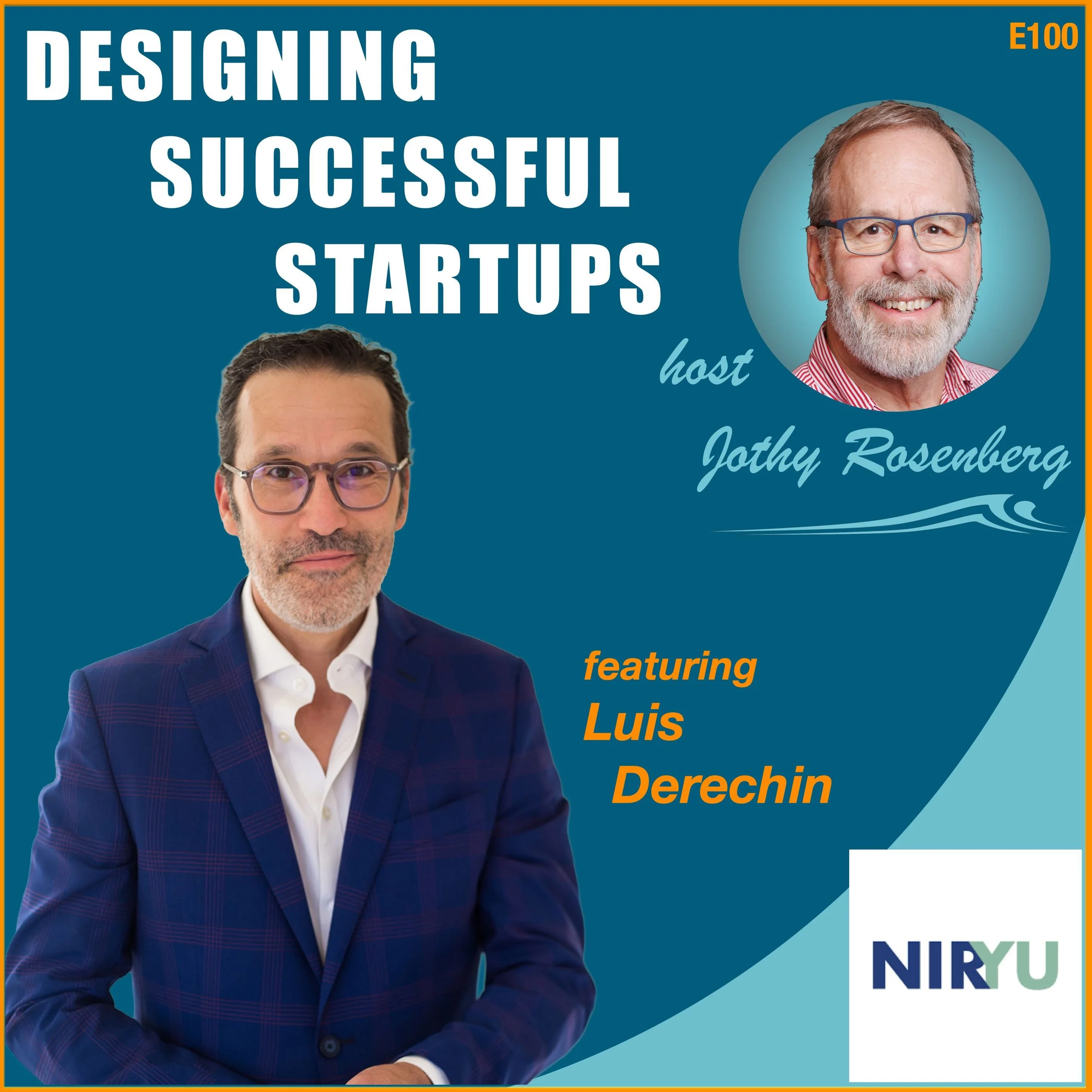
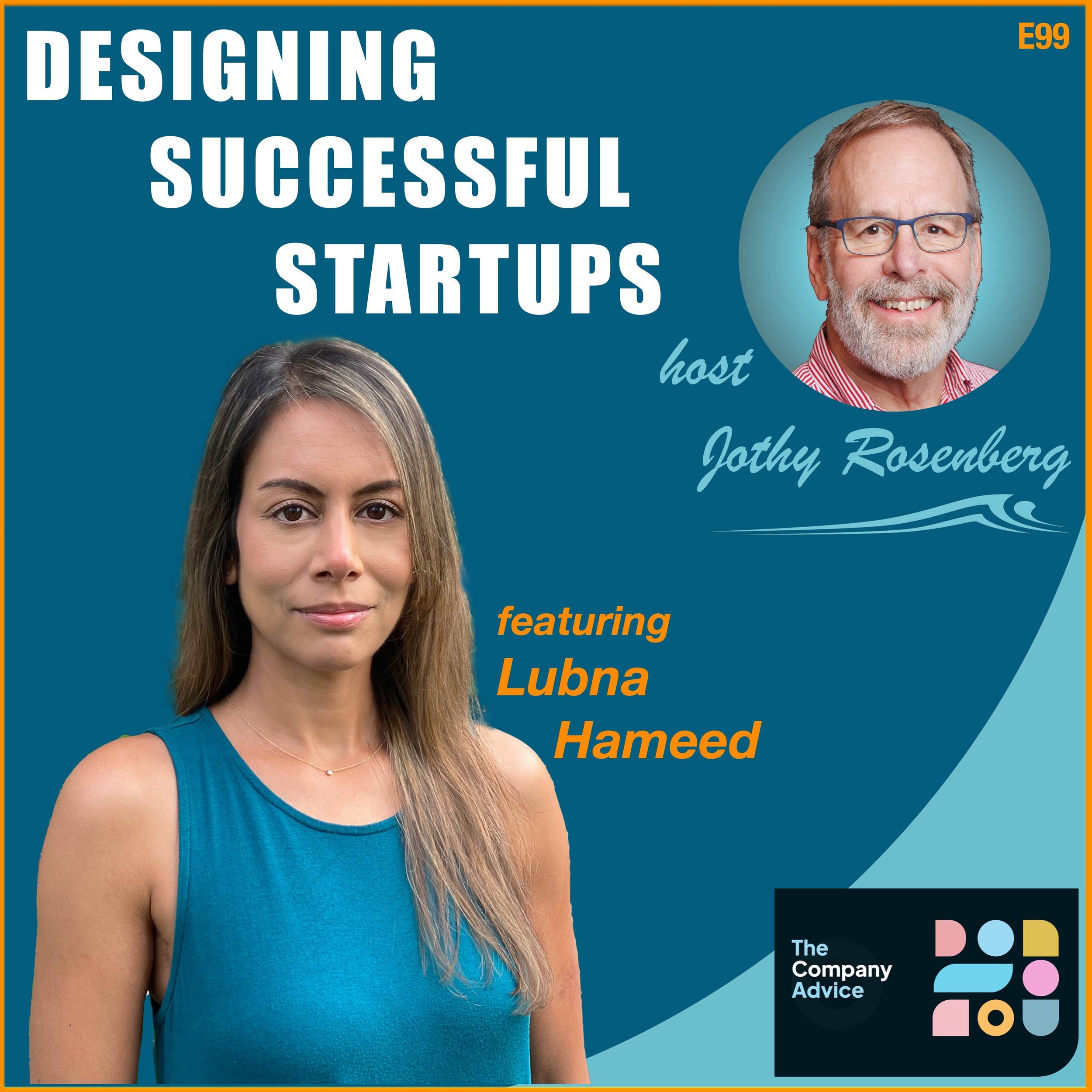
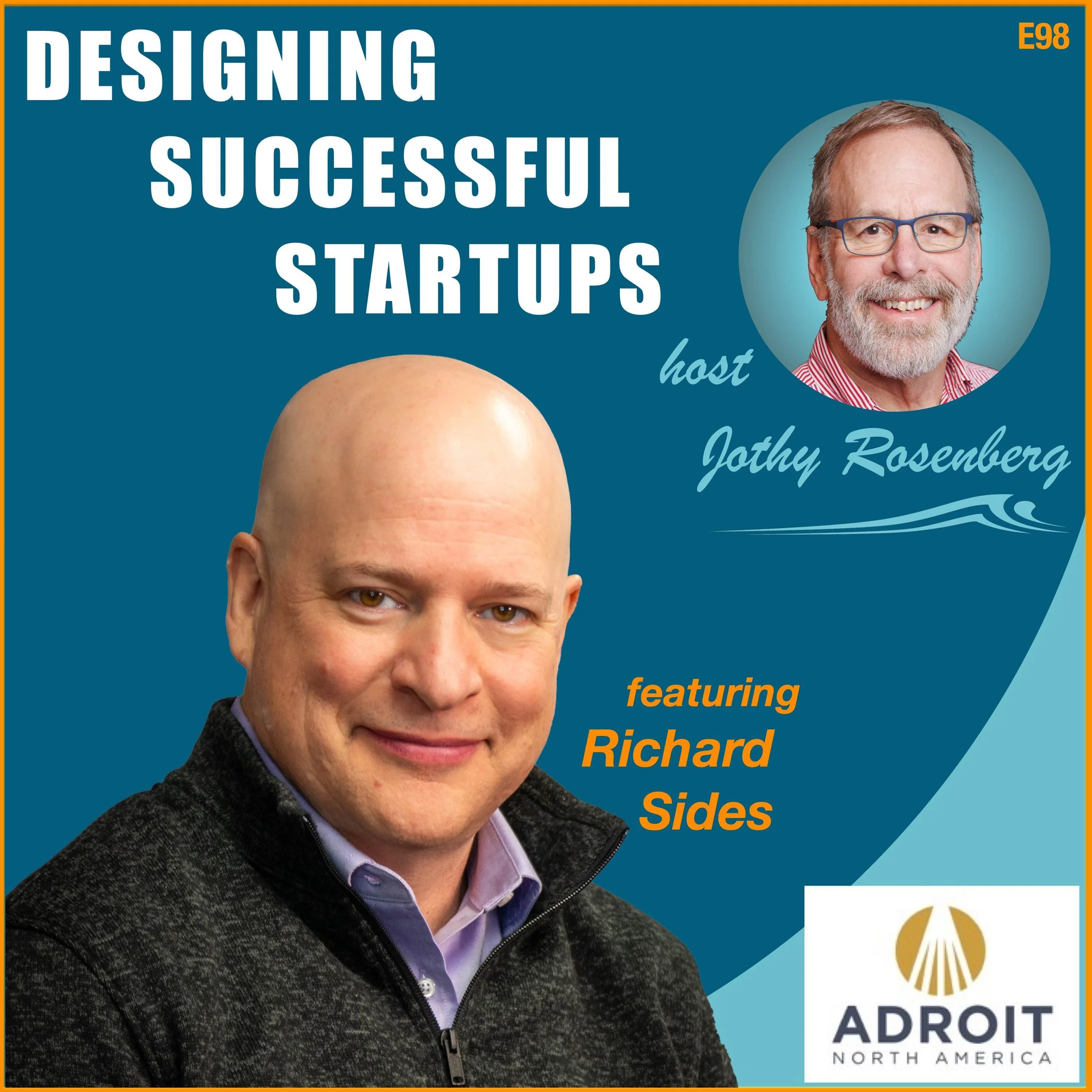
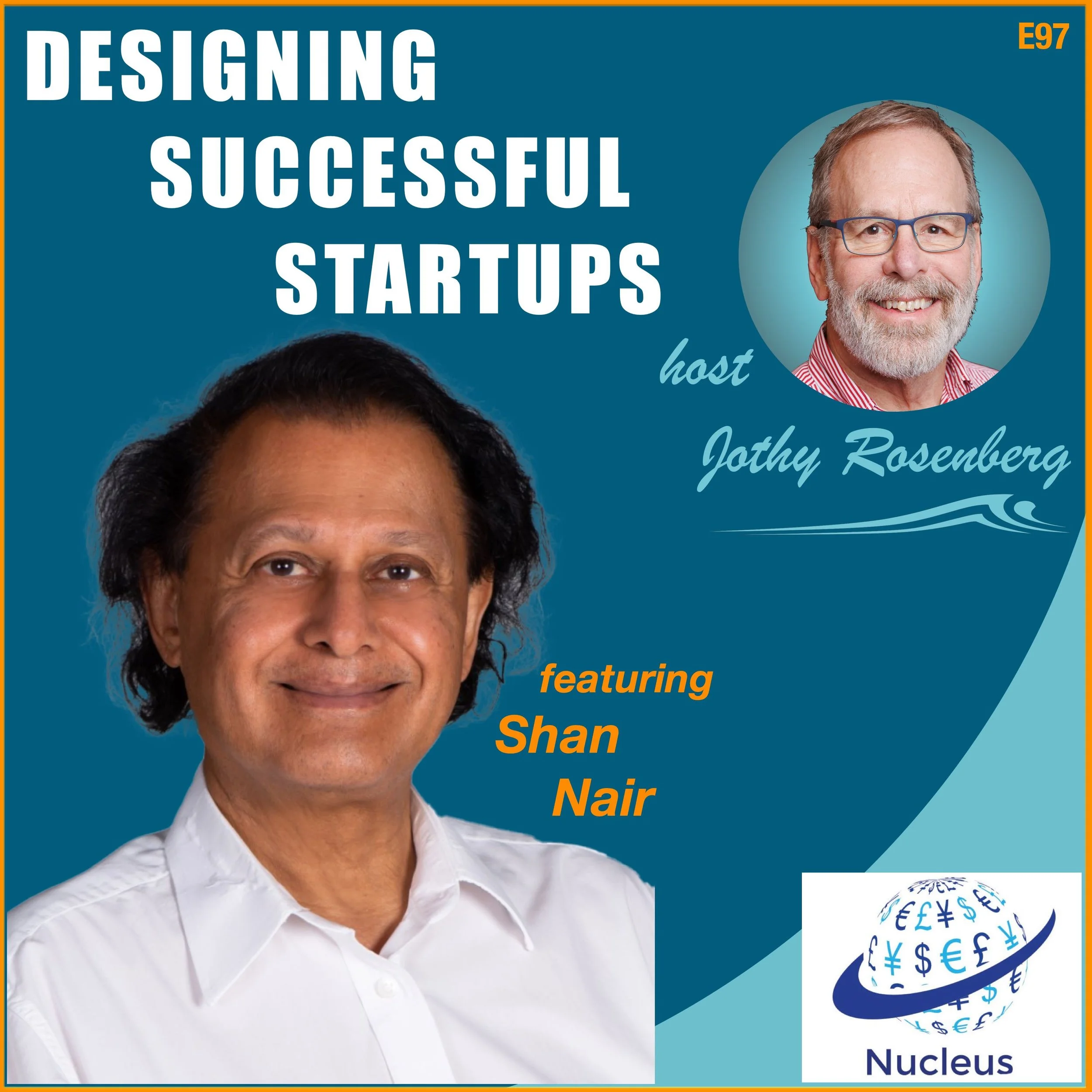
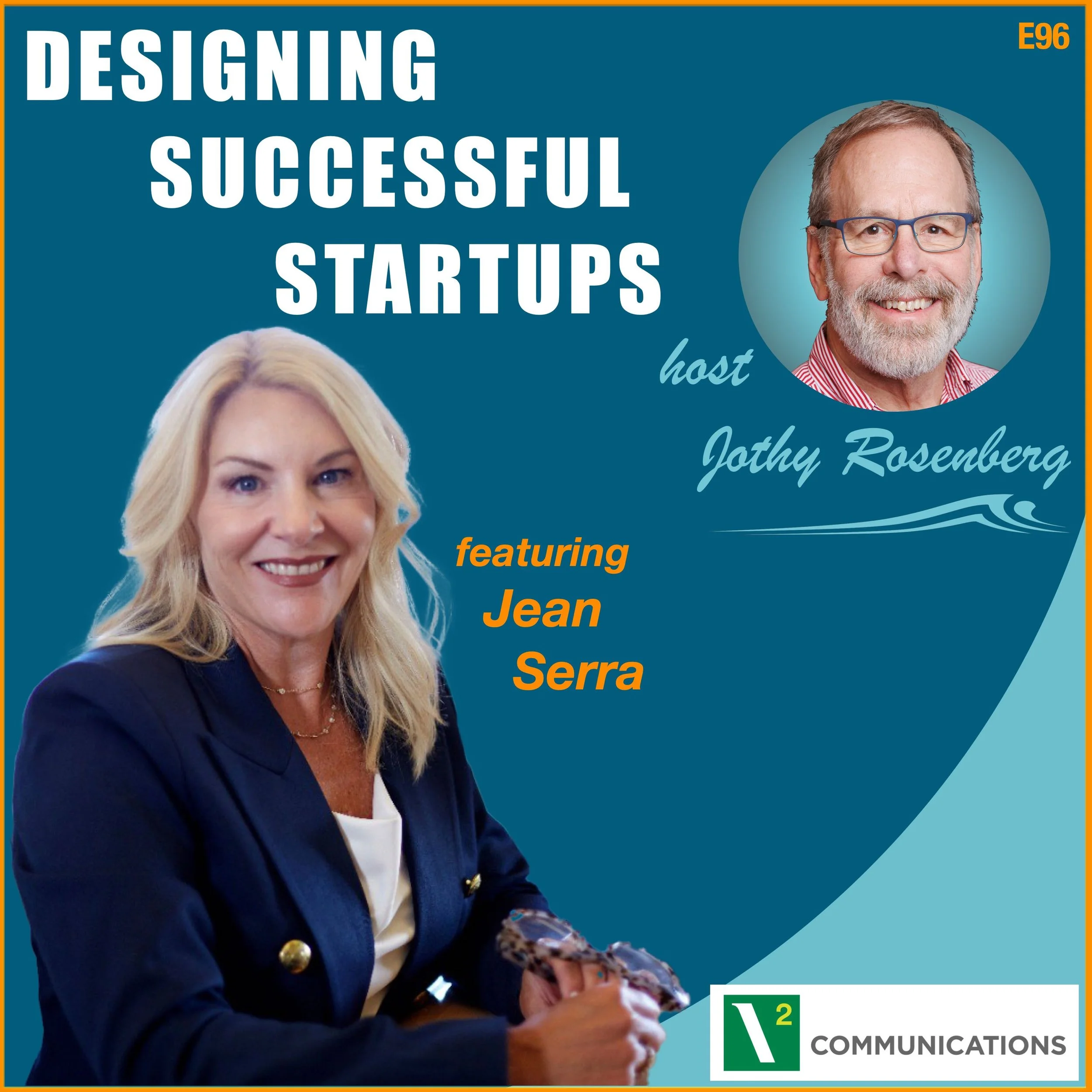
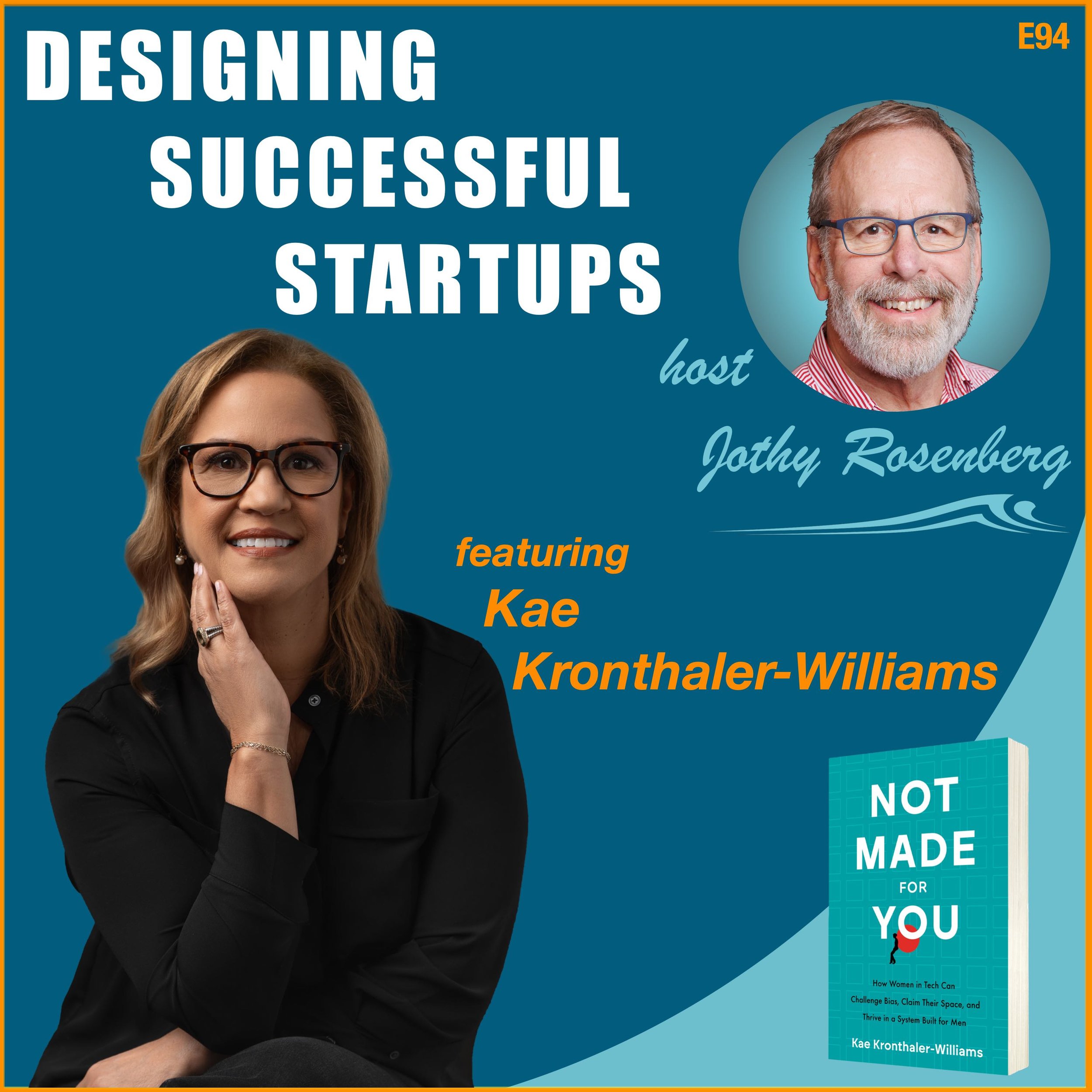
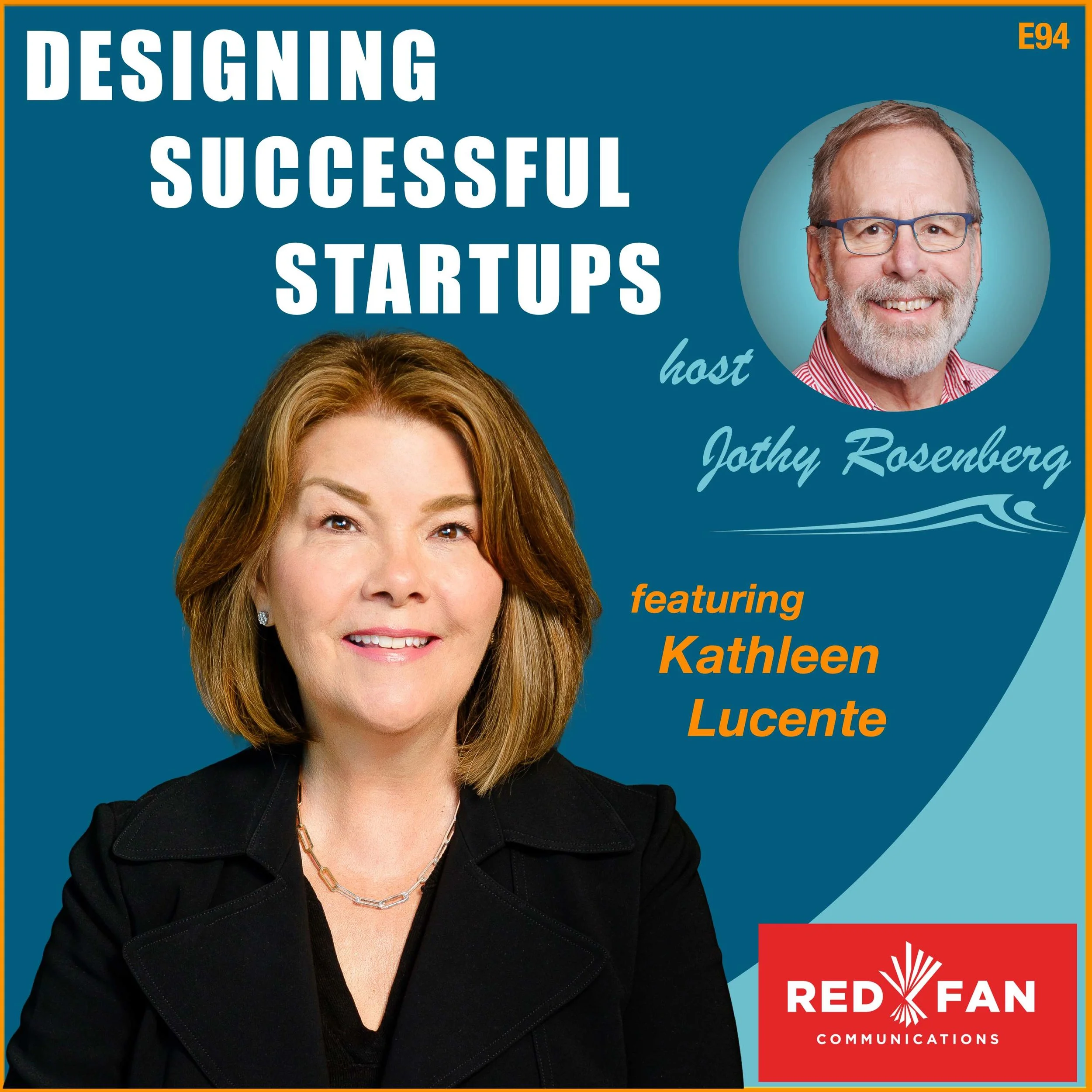
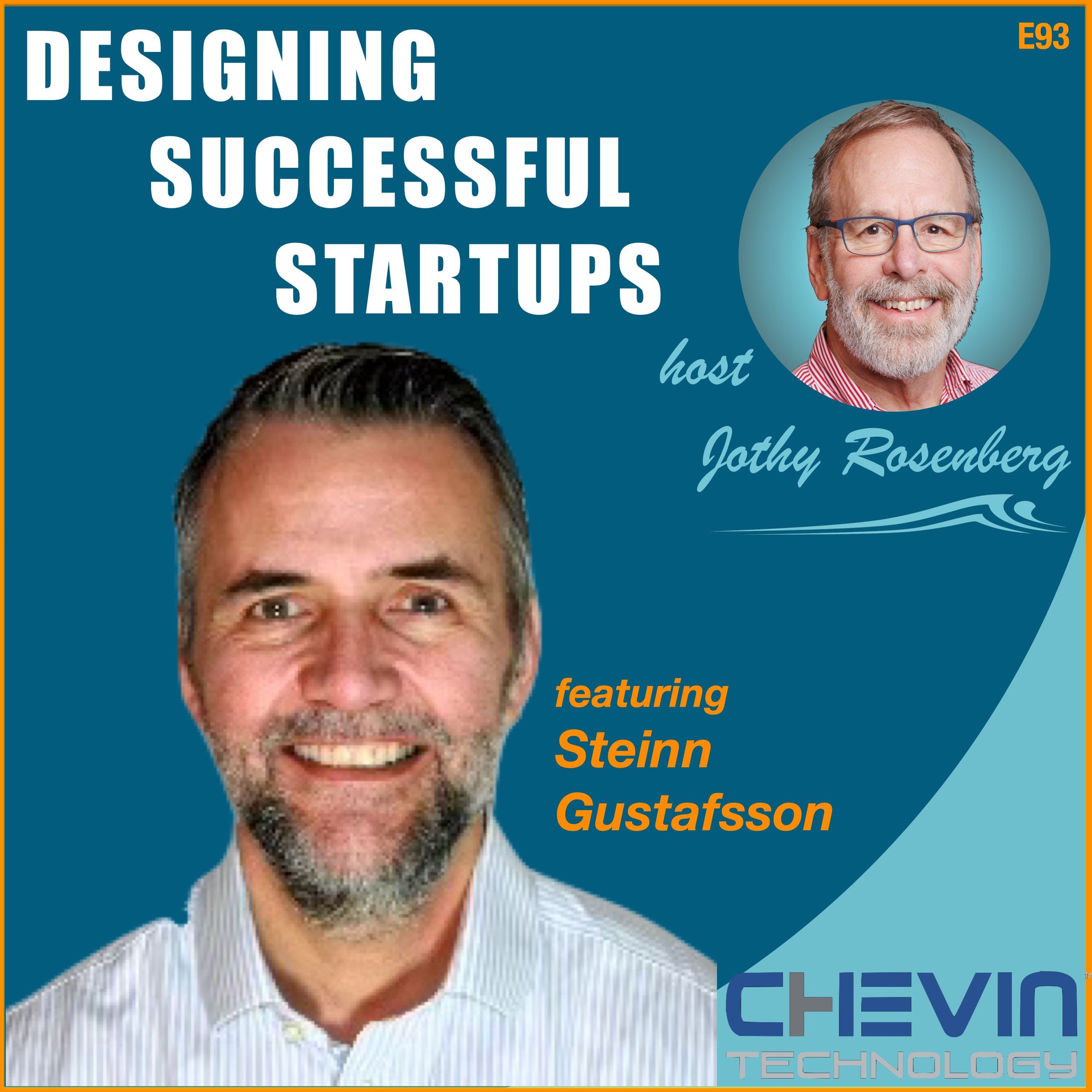
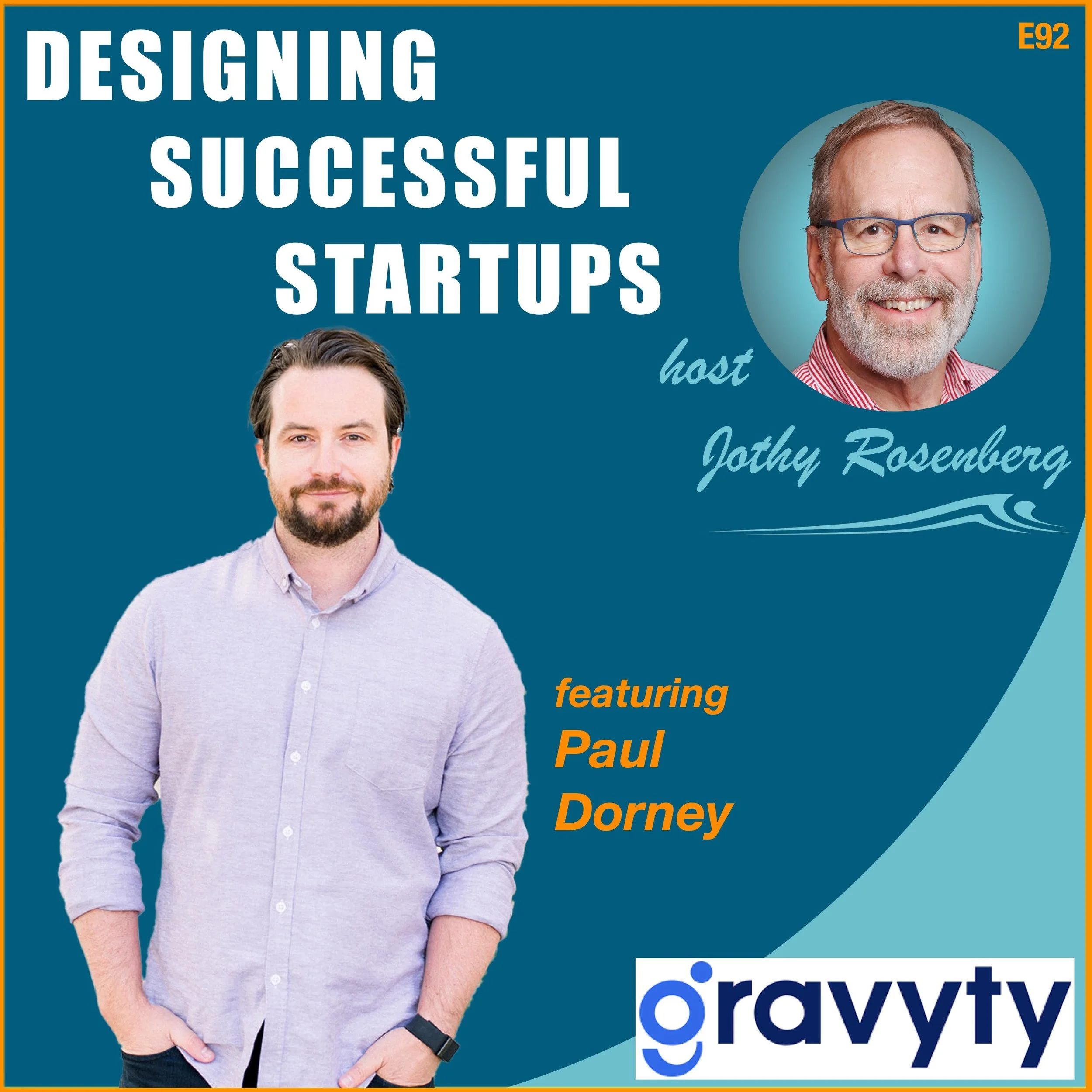
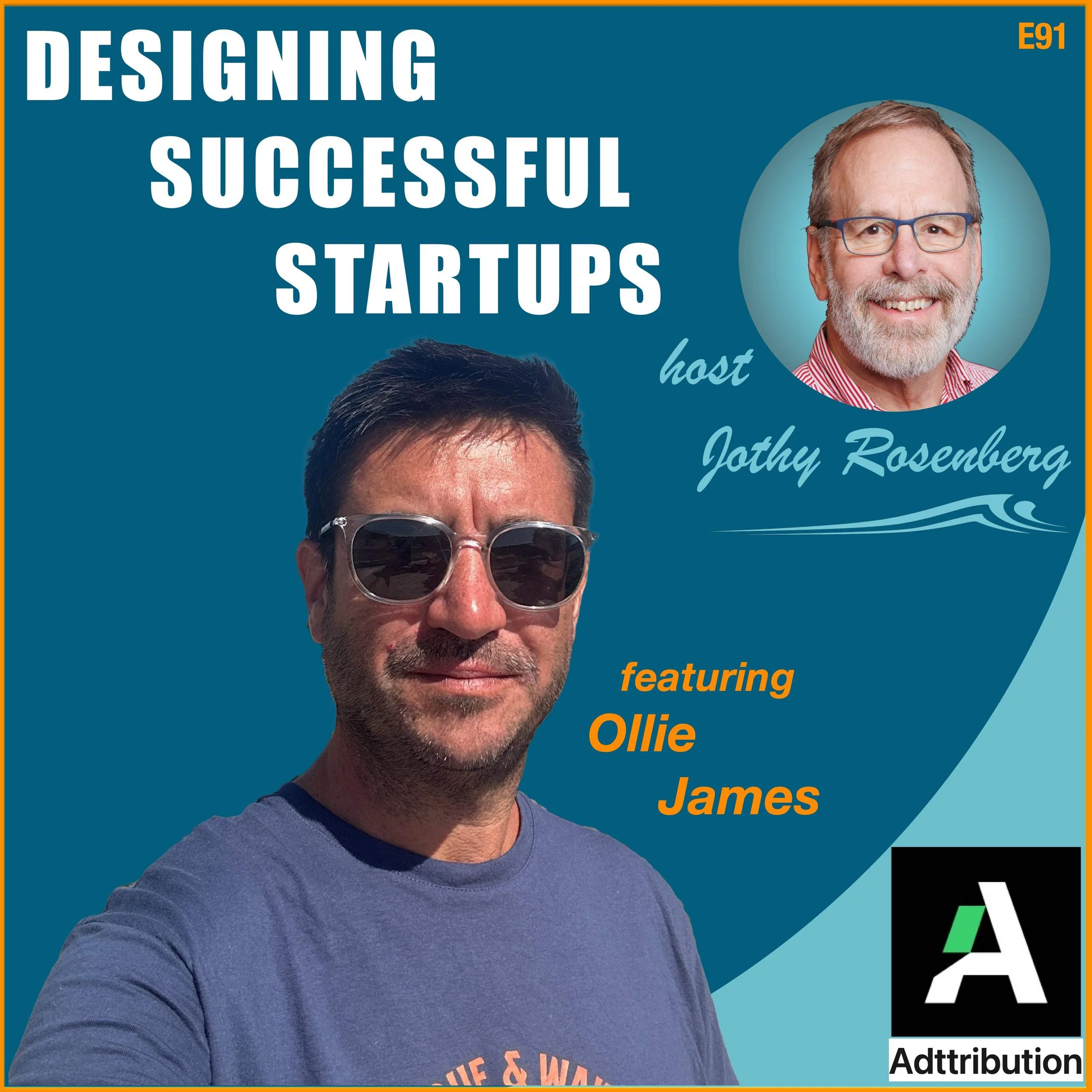
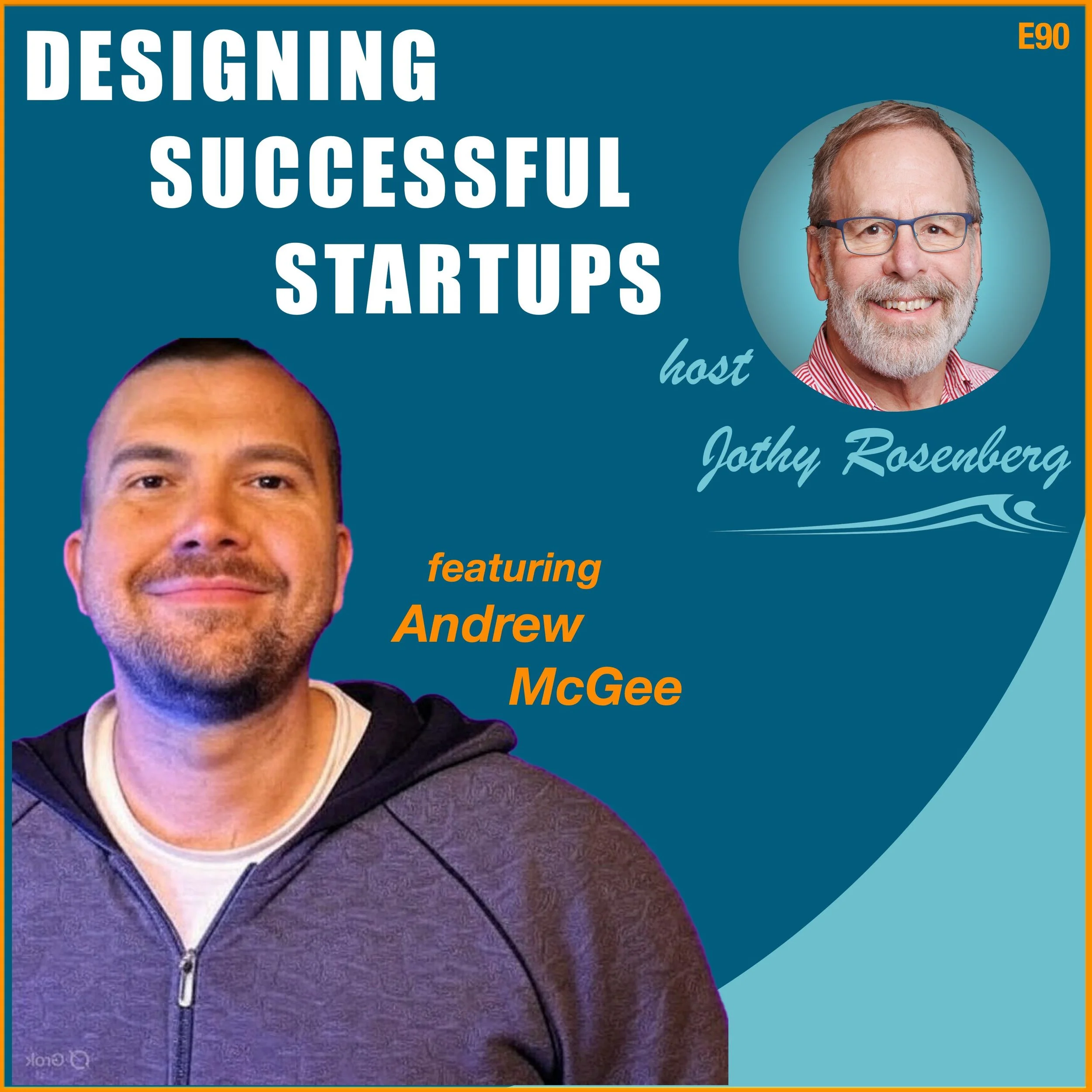












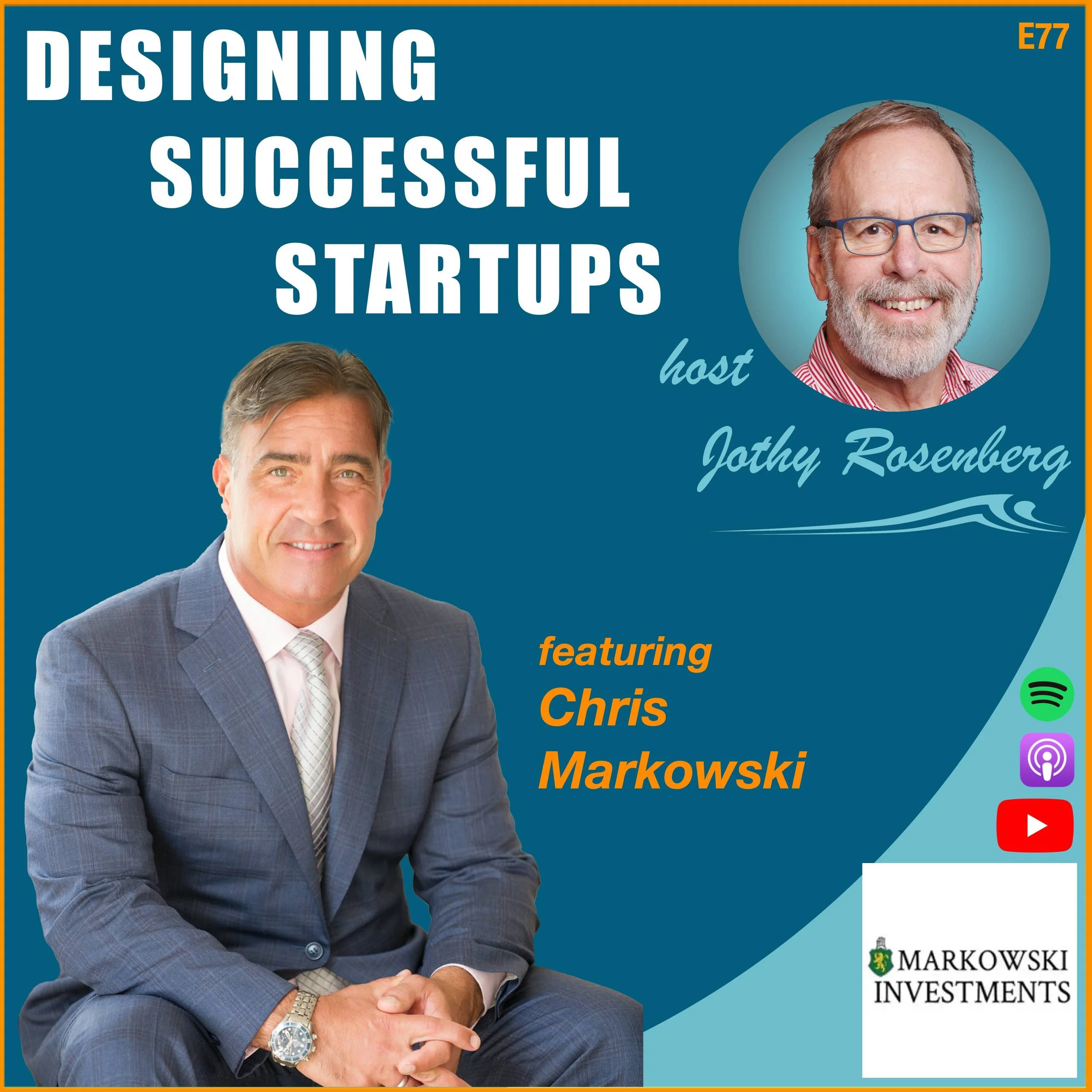




In this episode of Designing Successful Startups, host Jothy Rosenberg speaks with Jill Heinze, founder of Saddle Stitch Consulting, about the real risks and responsibilities of building with AI. Jill shares how her background in librarianship and UX research shapes her human centered approach to technology governance. Together, they explore why most organizations fail to see ROI from AI, how unchecked optimism can damage trust and reputation, and why founders must understand what they are building, breaking, and risking. The conversation reframes AI risk as an opportunity for better design, accountability, and long term value.